|
|
|
Most people who know me know that I am a professional organizer. When they learn that I have also been writing a book, in company with my husband, on America's war in Afghanistan, I can see them wrestling with the disconnect this statement engenders. I confess that at times I have wrestled with this seeming disconnect myself. How did I become an author on such a topic? For starters, I am married to a military historian who has published eight books (not counting this one), all of which I have edited. In recent years, I have also assisted him in his research, and I was a contributor on his last two books. It has been an evolutionary process, to say the least, but I won't go into that now. Instead, I wish to capture some of the lessons I have learned about life and organization through the process of writing about war and chaos. Some of these lessons are specific to the topic of our book, while others are more general to the writing process. Lesson #1: Work with a BuddyMy husband and I have very different methods of writing. I edit as I go, laboring over every sentence until I'm satisfied with it. I go back to the beginning repeatedly and reread the whole thing (or portions thereof) to see if I like the way it flows. As a result, my process is slow, but my product is pretty nearly complete by the time I get to the end. In contrast, my husband's method might best be described as a sort of brain dump; he refers to the process as "vomiting on the page". He expels his ideas in a sort of stream of consciousness and then goes back later to "clean it up." He writes chapters at a much faster pace than I do, but they require more editing before they are publication ready. You might think that our two disparate approaches to writing would be incongruous, but the opposite has proven to be true. In fact, we seem to balance each other out, so much so that as I performed the final edit of our work, I found myself wondering repeatedly, "Did I write that, or did he?" This had to do, at least in part, with the fact that we edited each other's work. Thus, the final product was a true melding of our styles and voices. In part, however, it had to do with the unique contributions we both provided. Because he was much more comfortable with and knowledgeable about the topic, I could ask for his input when I was stuck, and his insights would get me on track and moving forward. On the other hand, because I felt the need to research things in depth, I was sometimes able to provide information that was new to him. THE LIFE/ORGANIZATION CONNECTION: When it comes to organizing and life, working with a partner can help you to achieve things you might struggle to complete on your own. A reliable, truthful, supportive friend can be a cheerleader, a source of emotional support, a pillar of strength, and a provider of wisdom. A buddy can help you to see your stuff, your space, and even your situation in new and meaningful ways. You can gain new insights about how to arrange things, how to part with things, and how best to proceed with whatever challenge you're facing. In addition, a partner can help you to stay on task. In the end, your final product will often be better than you imagined because of the encouragement and guidance of a trusted friend. Lesson #2: Perfect is the Enemy of the GoodBecause my method of writing is laborious and methodical, I can sometimes get bogged down by the process. In my effort to produce the perfect paragraph, I can waste precious time and experience unnecessary stress. My husband, with his different approach to the process, helped me to see that my work didn't have to be perfect to be good. Knowing that we were going to go back over the product multiple times with more than one set of eyes meant that I could set things aside that I was struggling with and move on. Invariably, things that had stumped me earlier would come together with relative ease after a brief respite. THE LIFE/ORGANIZATION CONNECTION: Sometimes we talk ourselves out of doing something because we know we won't be able to do it perfectly. On the flip side, we can sometimes get bogged down in a process of seeking perfection that actually prevents us from making progress. Few things in life are perfect (aside from newborn babies). Most of the time good is.... good enough. It's better to move forward and improve in small but meaningful ways than to become mentally, emotionally, and physically mired in misgivings and self-doubt. Lesson #3: Trust YourselfWhen we first started on our book, I often found myself wondering what on earth I was thinking when I agreed to take on the project. What did I know about Afghanistan or the war? While my husband assured me that I knew a whole lot more than the average person, I still wondered if it was enough. The more I read, and researched, and wrote, the more my confidence in the topic and myself as a researcher, interviewer, and writer grew. I began to trust that I could do what I had set out to do. I came to see that I am a person who can do hard things, and that hard things are really the best kinds of things to do because in doing them we become better versions of ourselves. THE LIFE/ORGANIZATION CONNECTION: If you are someone who feels overwhelmed by the organization process, you're not alone. It can be extremely challenging. Just wrapping your head around what needs to be done and knowing where to start is mind boggling for many. That said, it's the good kind of hard. Getting organized can change your life. It can make you a better version of yourself by improving the way you do things, how you look at the world, and how you interact with your environment. I truly believe that organization has the power to transform people's lives by reducing stress, increasing productivity, improving peace of mind and nurturing a sense of empowerment. If life is hard, one thing that can make it a little (or a lot) easier is getting organized. Lesson #4: Don't Give in to DiscouragementI admit that over the two plus years that we worked on the Afghanistan book my enthusiasm for the process and the product waxed and waned. At times I wanted to give up and walk away. My husband is a busy guy; he's almost always juggling multiple projects. There were times when I thought he would never have the time needed to help me get the book finished, and I didn't see how I could possibly do it alone. We figured it out. He made the time. We worked together and made it happen, and if I'm being honest, I have to admit that I am pretty proud of what we accomplished. THE LIFE/ORGANIZATION CONNECTION: Think of the word discouragement. The prefix 'dis' gives the root word the opposite meaning - so, for instance, trust becomes distrust, or not trusted. The suffix 'ment' comes from the Latin word mente which means mind or thought. So, discouragement is an absence of courage of thought. Synonyms for courage include determination, endurance, and fortitude. It's more than just bravery; it's sticking with things that are hard and seeing them through. As we've already established, getting organized can be difficult, challenging, and even overwhelming. It requires courage in the form of stick-to-itiveness, a willingness and conviction to persevere through the rough patches. Just as with our book, sticking with the organization process is well worth the effort, and you will feel wonderfully accomplished and proud when your goal is met. Lesson #5: Growth is Part of the ProcessIn the beginning, every chapter was painstaking. I lacked confidence, and I didn't trust myself. As a result, I worried and worked extra hard to understand the subject matter until I could explain it in layman's terms. In time, something inspiring occurred. The more I researched and interviewed and wrote, the more comfortable I became with my ability to do those things. My belief in myself improved. I became not only comfortable with, but proficient in my subject matter. It got easier. It wasn't until I found myself easily conversing with my husband about the challenges associated with using B52's for close air support or quickly creating a call-out box on the difference between the Taliban and al-Qaeda without having to look it up that I realized I had grown into and embraced my new role. It was a good feeling. THE LIFE/ORGANIZATION CONNECTION: I have seen a similar transformation in some of my clients. At first the organization process is daunting, and they are trepidatious about undertaking it. The more they work at organizing, the more comfortable they become with it. With enough effort and consistency, some actually change the way they think and act such that they truly become organized people. The more you do a thing - anything, really - the easier it becomes. Lesson #6: Look for Sources of InspirationMy confidence and comfort level took a turn in the right direction when I met a wonderful woman, an American soldier, who not only provided me with an interview that became the basis for one of our chapters, but also introduced me to two other women, both Afghans, who helped me understand Afghanistan and the war in new and eye-opening ways. All three of them continue to be a source of inspiration to me. They see needs, and they strive to fill them. They are making a real difference in the lives of people in truly desperate circumstances. Their stories gave meaning and purpose to my writing. THE LIFE/ORGANIZATION CONNECTION: Inspiration motivates and excites us to do and be better. It can come in many forms - a Pinterest image, a song, a blog post, a story, a person, etc. Look for ideas, resources, and people who make you want to improve and believe that you can. Anything that weighs you down or makes you feel inferior should be avoided. Look for the uplifting and let it embolden and excite you to do the things you've been afraid to do for one reason or another. Lesson #7: Look for the Silver LiningLike so many aspects of life and areas of the economy, the publication industry has been impacted by COVID-19. Our publishers, at least, are way behind on their review process. As a result, our deadline got moved back. In some ways this was a bummer because we were both eager to get done with the book and move on to other things. In the end, though, having extra time proved to be a good thing. It allowed us to tell a more complete tale of the war and its impact. By the time we sent our manuscript off, the United States had withdrawn from Afghanistan, and we were able to capture that process and its impact in our book. Had we met our original deadline, that would not have been the case. THE LIFE/ORGANIZATION CONNECTION: Life is full of challenges and setbacks. Often my organization clients are struggling to regain order in their lives after experiencing some sort of major life change or other challenging circumstance. Otherwise orderly people can become disorganized in the midst of life's chaos. Know that unexpected changes, no matter how unwelcome they may be, bring new opportunities in the wake of the trials. There is always something to be learned and gained from every experience. Often times of change are opportunities to rethink one's situation and make a fresh start. Lesson #8: Step Outside Your Comfort ZoneTo say that the topic of the Afghanistan war was outside my comfort zone is an understatement, but it has become a topic that I am not only comfortable with but somewhat passionate about. We often talk about "thinking outside the box". My husband, who also teaches about the concepts of narrative and cross-cultural relations, promotes the idea of expanding one's box to include new ideas and ways of thinking about and doing things. Our book taught me that doing so is not as difficult as you might think. It requires effort, to be certain, but as noted already, it gets easier over time as you expand your mind and develop your skills. THE LIFE/ORGANIZATION CONNECTION: Often a lack of organization can be attributed to habits and behaviors. Changing our behaviors and developing new habits (or systems) can make a huge difference in the level of organization we enjoy, but it all begins with a willingness and desire to step outside our comfort zones and try a new way of thinking about and doing things. Lesson #9: Everyone Thinks They Are on the Right SideAs Americans, we think of the Taliban and al-Qaeda as the 'bad guys', and we think of ourselves and our allies as the 'good guys'. The Taliban and al-Qaeda see things the other way around. They believe their cause is just. They see America and the West as decadent and depraved to the point that they have a duty to rid their world of our influence. Everyone thinks they are on the right side doing the right thing for the right reasons. I truly believe that there are very few people in this world intentionally pursuing evil for the sake of evil. People generally do what they do because they believe it's the right thing to do, and they want to be right. THE LIFE/ORGANIZATION CONNECTION: Living with other people, no matter how much we love them, is challenging. Often, those we love have a different approach (or lack thereof) to organization and clutter. Their clutter tolerance may be higher or lower than our own. Such circumstances can create tension and conflict within the home. Achieving compromise can be difficult, but it starts with recognizing that other people aren't doing what they do simply to rile and annoy us. They're doing what comes naturally to them. The first step to achieving consensus is learning to understand one another's perspective. Lesson #10: Things Are Often Not as They SeemIn our research we looked at a ton of primary source documents. One thing that quickly became apparent was that every source has a bias. Everyone, be they politicians or reporters or military commanders or common, everyday people, is trying to tell their story, and every story is impacted by the perspective from which it is told. Most people, whether consciously or unconsciously, don't tell the whole story; they tell the story they want you to hear. Their intent may be entirely innocuous. Nevertheless, what they are really sharing is a message, and the story is the means of conveying that message. THE LIFE/ORGANIZAION CONNECTION: We all have messes and fall short and make mistakes and struggle. No one's life is perfect. No one's kids are perfect. No one's house is perfectly organized - not even a professional organizer's home! When we view other people's lives through the lens of social media, it's easy to feel inadequate in comparison to the happy smiles, extravagant vacations, joyous occasions, clever projects, and glorious accomplishments that most people share on these platforms, Don't let other people's carefully curated experiences fool you into thinking that you are less capable or successful than them. We're all just doing the best that we can, including you. Give yourself some grace. Final ThoughtsThe Afghanistan book often felt like a burden to me while it was a work in progress, but once it was complete, I felt great fondness for the project. I'm grateful to have had the opportunity and experience. I'm proud of our hard work and the product we produced. I'm excited to see our book in print. What's more, I like how it has changed me for the better. It has helped me to grow and to develop my skills and abilities.
Isn't that the way it is with challenges? They seem really difficult when you are experiencing them, but once you've overcome them, they don't seem like such a big deal. In fact, they often feel like a blessing. I think that's because they are. Life is about growing, and changing, and improving, and the surest way to do those things is to push yourself to do things that feel a little (or a lot) beyond your current abilities - whether that means writing a book or tackling the mountain of mementos in the attic. In the end, I think you'll find that you are glad you made the effort.
28 Comments
On June 24th my mother passed away. It wasn't sudden or surprising. Her health had been steadily failing for some time. But, as I'm discovering, the likelihood of a person's passing doesn't make it any less sad or surreal when it occurs. As my sister and I have experienced (and continue to experience) the process of planning a funeral and closing out a loved one's estate, we have had ample opportunity to reflect on a number of things from the spiritual to the intellectual to the temporal. Not surprisingly, one of the things that dominated our thoughts in the days following our mother's passing was how best to remember and celebrater her life. This process is unfortunately, but necessarily, dominated by a vast number of decisions regarding the permanent resting place of a person's remains. I think it's natural in such circumstances to think about what you would do, or what you would want done, in a similar situation. I also think that making some decisions in advance, and even taking certain actions, regarding your own funeral and burial, is a gift you can give your loved ones that will bless them tremendously during a very difficult time of their lives. While there are a number of things you can do to make your passing a little less stressful for your loved ones, in this post I'm going to focus solely on the benefits of planning your own funeral.
Do you sometimes feel a deep sense of weariness at the end of a long day? If so, you are not alone. Each and every one of us is bombarded on a daily basis by a never-ending stream of decisions about everything from the mundane to the life-changing. The stress that results from this endless mental strain is known as decision fatigue. The more stressed we are, the more difficult it is to make coherent decisions. Unfortunately, the death of a loved ones is fraught with decisions - important decisions: decisions about how and where to bury them, decisions about the dispersal of their personal belongings, decisions about the management of their finances and property, and more. At a time when people understandably feel least capable of or inclined to make important decisions, important decisions are demanded of them. Making some decisions in advance regarding your own funeral and burial can relieve much of this difficult burden for your loved ones. Here are some of the benefits of planning your own funeral. Financial Funerals are expensive and fraught with hidden costs. Not all of these costs can be covered in advance, but the big ones like a casket, burial plot, and headstone can be decided upon and paid for anytime. Covering as much of the cost as possible in advance will not only save your family a great deal of money; it will also provide them peace of mind. If you are not inclined to purchase your own casket, burial plot, and headstone, consider planning financially for these necessities so that your family will not have to bear the expense. This can be done in a couple of different ways. You can purchase a life insurance policy specifically designed for this purpose, but keep in mind that it takes weeks or months to collect on a life insurance policy and funeral costs are immediate. Another option is to set aside a fund to pay for your funeral expenses. Just be certain that your family knows where the money is located and how to access it in the event of your death. Whichever option you choose, I recommend having a minimum of $15,000 set aside (twice that would be preferrable). In addition to funeral costs, you family's finances may further be strained by costs associated with travel and lost wages incurred through taking time off to manage your affairs. For this reason, you may want to consider saving beyond the bare bones cost of a funeral in order to more completely ease your family's financial burdens. Mental As mentioned previously, decision fatigue is real, and having to make important decisions while suffering the mental and emotional strain associated with a loved one's death is extremely taxing. In dealing with our mother's passing, my sister and I both found ourselves feeling tremendously tired, and this exhaustion was as much mental as it was physical. Emotional The emotions surrounding the death of a loved one are complex and intense in their own right. It's possible to inadvertently add to your loved ones' emotional burden by forcing them to search for the information they need to close out your estate. Doing so will likely lead to frustration and possibly even annoyance. The presence of such emotions at the time of a loved one's passing can further lead to feelings of guilt. By not only planning aspects of your burial, but also sharing that information with your family, you can greatly relieve the stress they are bound to feel. Social/familial If decisions are made in advance by you, then your family isn't left to wonder what you would want and potentially argue over what's best to be done. It is assuredly helpful to loved ones to have some of the details of a person's funeral planned and paid for in advance, but not necessarily all. Dictating to your loved ones how you wish to be remembered (or not as the case may be) may prevent them from mourning in the manner that will be most healing to them.
My grandmother lived across the street from us growing up. She was an integral part of my young life until she passed away during my sophomore year of high school. She was always there, a constant. Until she wasn't.
We did not have a funeral for her, not because we didn't want to, but because she asked us not to. There was no celebration of her 82 years of life, no sharing stories with friends and family, no bidding her farewell. One day she was just gone forever, and we just had to get used to the idea, slowly, with nothing to ease the transition. My mother made a similar request, but my sister and I chose not to honor her wish. We understood that funerals are an important step in the process of achieving closure when it comes to the loss of a loved one. They provide an opportunity to remember, to celebrate, and to say goodbye. My sister and I needed that opportunity to reflect and to mourn. We needed to be surrounded by friends and family and hear from dozens of people how impactful our mother's life had been. We needed to witness the reality of her departure first hand so that we could better process it in the coming days and weeks. We kept it simple, knowing that what she was really asking us was not to go to a lot of trouble. We said what we needed to say. We heard what we needed to hear. We both believe that had she been present, Mom would have been pleased. While purchasing a plot, a casket, and a headstone can save your family a lot of stress and money at the time of your passing, dictating too many specifics regarding your funeral may very well cause them stress. It's important to remember that while your funeral will most definitely be about you, it isn't for you. Allow your loved ones the freedom to celebrate your life and their love for you in the manner that will be most meaningful and healing for them.
Recently, as I have begun to work virtually with clients, I have encouraged them to keep a downsizing journal.
A downsizing journal is exactly what it sounds like: a journal dedicated to the process of downsizing. Downsizing is a major undertaking that involves a great deal of physical, mental, and emotional effort. At times, it can be overwhelming, frustrating, and/or exhausting. Staying on track and maintaining your motivation for such an undertaking can be challenging. Writing about the experience can help you appreciate your purpose, examine your feelings, vent your frustrations, and record your progress.
You can obviously include anything you like in your downsizing journal. That's the beauty of journals; they're personal. That said, I do have a few recommendations for how to utilize a downsizing journal effectively. Consider including the following: Define Your "Why" Your "why" is your purpose for downsizing. I enthusiastically encourage you to start your journal off by creating your persoanl list of reasons for embarking on the downsizing journey. Take your time producing this list. Ponder. Ask yourself questions such as:
Record your answers. You can create a simple bullet list or write detailed paragraphs explaining each of your reasons. However you choose to record the information, it's important that you look at it frequently throughout the process. Use it as a reminder of why you started the downsizing process and a source of motivation to keep you focused and moving forward. Describe Your End State Your end state is closely related to your "why" but different enough to merit a page or two of its own. Your end state is what allows you both to visualize and to recognize success. How will you know when you have successfully downsized if you don't have a picture in your mind of what that will look like? Again, it's helpful to ask yourself a few questions and record your answers. Some questions to ponder include:
Again, it's important to revisit your answers periodically in order to evaluate your progress and be reminded of what you are working toward. Outline an Action Plan If you are working with a professional organizer, he/she can assist you in creating an overarching plan for achieving your downsizing goals. Downsizing is a comprehensive process that typically involves editing all of your possessions, at least to a certain degree. As such, it is best to break it down. I recommend taking one of the following approaches:
Creating a detailed plan for downsizing will take some time and thought, but it will make the actual process much simpler because you will know when you have met your goal. Decision making will be less stressful if you have a clear set of guidelines in place to help you determine what you want/need to keep. Record Your Progress A journal is a great place to insert before and after photographs to document your progress. You might also use your journal to make to do lists. Personally I find crossing items off a list extremely satisfying. You can also just write about your progress in typical journal format by describing what you accomplish each day or week. Vent Your Frustrations As with any major undertaking you will encounter challenges throughout the downsizing process. Things will not always go according to plan. Venting your frustrations on paper can be wonderfully theraputic. It's a way of purging your soul while purging your belongings! Work Through the Decision Making Process If you're having trouble determining what to part with or struggling to let go of things, write about it. Make a list of pros and cons for keeping or getting rid of a particular item that's causing your stress. Seeing it all laid out in black and white often yields an obvious solution. Record Your Feelings When you're feeling overwhelmed by the sheer scope and scale of the process, write it out. When you're feeling proud of what you've accomplished, record those emotions. Writing down your feelings can be an effective way of processing them. The simple act of writing it down can help you to make sense of what you're feeling and deal productively with those emotions. Write About Your Stuff Do you have fond memories of a particular item? Whether or not you are keeping the item in question, I recommend writing about it. Describe the circumstances that led you to acquire the item, who gave it to you, what you love about it, why it has value to you, and where it came from. You might even experiment with writing to the item itself. Pretend you are transcribing a letter to the beloved item. Reminisce about how you "met", who "introduced you", what kinds of experiences you enjoyed together, and so forth. Be sure to include a photograph of the item as well. Keep Track of Things We downsized as part of a recent move. For us the process involved giving away many items to friends and family, donating items to charity, and selling some items. Because I was giving away a lot of things to a lot of different people, I kept an ever-evolving list of the items I had offered up, who had claimed them, and when/where the items would be handed off to their new owners. A downsizing journal is the perfect place to keep track of such information. If you're selling a lot of things, you can also use your journal to list each item, your asking price, your rock-bottom price, and other pertinent information.
If you are embarking on the downsizing journey, I hope you will consider keeping a downsizing journal. Doing so can help you manage, process, record, and preserve the process. Your downsizing journal can be private, or you can share it with a family member or trusted friend. If you are working with an organizer, I recommend you share portions of your journal with him/her as you deem appropriate.
Downsizing has been on my mind lately. My husband and I recently downsized extensively as part of a move, I'm working with a couple of clients right now on major downsizing projects, and this past week I helped my mom downsize as she moved to a significantly smaller space. On top of that, my daughter and her family are currently downsizing to a much smaller home as part of a temporary relocation. As a result, I've put a lot of thought into the process of downsizing, how it differs from simple decluttering, and how the two processes are related. While it is impossible to downsize without decluttering, and decluttering certainly reduces the amount of stuff in a space (i.e. downsizing), in my mind there is a discernible, though perhaps subtle, distinction between the two processes. Meriam Webster defines the word declutter as follows: (verb) to remove clutter from a room, an area, etc. You will not be surprised to learn that, as an organizer, I have a fondness for decluttering. Indeed, for me it is a mindset, a way of life. I keep a bag, box, or bin for collecting items I wish to get rid of perched in a designated spot in my garage, and I regularly make trips to the thrift store to make donations. It wasn't, however, until this last move that I felt like I could say I had legitimately downsized my belongings. So what's the difference? The definition of downsize is: (verb) to reduce in size. How is this different from decluttering? The distinction, in my mind, between downsizing and decluttering centers on two factors:
Scope Let's start with scope, or extent. One can declutter, or reduce the clutter, of a surface, a drawer, a closet, a room, or an entire house. On the other hand, downsizing refers to the comprehensive reduction of one's possessions. Thus, the scope is broad and all-inclusive. When you legitimately downsize, it is with the intent of living a simpler life, one that reduces your overall footprint and requires less space. Scale Since decluttering simply involves the reduction of clutter, it can be performed on a small scale - such as thinning out a collection or getting rid of items that are no longer functional. If we wanted to get technical, getting rid of just one unwanted or unneeded item could be considered decluttering. Downsizing, on the other hand, requires a tangible change in the amount of stuff you own. When you downsize, you minimize all of your belongings typically with the intent of reducing the size of your living space. Because the scope and scale of downsizing are much broader than is generally the case with decluttering, the process can be a bit overwhelming, and it can be difficult to know where to start. Since I've had to really think this through lately, I've come up with some suggestions for how to approach the downsizing process. Define and Embrace Your LifestyleOften downsizing is motivated by a lifestyle change. It may be one that you have sought out, as was the case for us, or it may be one that is thrust upon you. Whatever the case, the first thing to do when you are faced with downsizing is to examine your situation. For example:
Thinking about potential changes to your lifestyle that may come about as a result of downsizing will help you come to terms with the process and even look forward to living with less. Instead of feeling like a burden, you can start to embrace downsizing as a means of reducing the burden of unwanted, unneeded, unused stuff. Start with the Easy StuffWhen faced with a major undertaking such as downsizing, I recommend starting with the simple stuff and working up to more challenging tasks. What is the simple stuff? In this case, I am referring to those things that are the least stressful to part with - things that have no sentimental or inherent value. Here are a few examples:
Purge Your PaperworkOne unused, often unneeded, item that people frequently hang onto is paperwork. If you are downsizing, now is the perfect time to get rid of all that excess paper. For tips on how to Declutter Papers and Files check out the Information Management section on this website. Let Your Space Be Your GuideIf you are downsizing but staying in the same place, consider how you would like your space to look and feel. If you are downsizing to a smaller space, examine the new space carefully. Take photos and measurements. Only keep those things that will fit the constraints of your space, whether literal, physical constraints, or intentional, functional constraints you have choosen to apply. Only keep the clothes that will fit comfortably within your closet and/or dresser. Only keep the books that will fit on the shelves you have for which you have space...and so forth. Practice ExclusivityThink of your space as an exclusive club - only the best of the best are allowed admission. Choose your favorites, and part with the things that are just so-so. Choose your favorite furniture, your favorite decor items, your favorite wall-hangings/photos/artwork, your favorite kitchen utensils, your favorite clothes. Imagine a space where all the things that surround you are things that you love. This quote from William Morris has always inspired me in this regard: Search for Versatile SolutionsAs you sort through your possessions for those worthy of keeping, look for items that can serve more than one function. Furniture pieces are a great example. Do you have an item that offers both seating and storage? Or a work surface as well as storage? Be RealisticIf your space is decreasing, it is important to choose items that are correctly proportioned. A queen size bed is obviously a better option for a small bedroom than a king size bed. Choose furniture with slim lines such as narrow side tables, a sleek sofa, a petite table, etc. Avoid overstuffed, bulky furniture. Consider how you will use the space as well. Do you need a separate desk, or can you function comfortably with a folding or portable desk? Or could your dining room table double as a work space? Living with LessIf your downsizing efforts are brought about by necessity, and not by choice, you may be feeling frustrated, overwhelmed, or depressed. It's normal to feel that way in such circumstances. Just know that, while changes is almost always challenging, it also brings opportunities for growth and opens the door for new experiences. Look for the positives that will result from this change of lifestyle. There will be many.
I just returned from a walk in the brisk fall air. I love fall. It is by far my favorite time of the year. I spend much of the summer anxiously awaiting its arrival, and I mourn its passing as mild, sunny days give way to winter's chill. The reasons for my fondness of fall are many, but this morning as I observed random leaves floating to the ground, one in particular stood out in my mind: change. I like the change in the weather, the change in activities, the change in focus, and the changes in nature. All this got me thinking about the concept of change, especially when considered in conjunction with some other aspects of my walk which I will share in this post as well. We are currently undergoing a major life change. We are moving houses. I'm both excited and overwhelmed by the prospect. That is the thing with change; it can be both uncomfortable and exciting at the same time. For instance, there are many things about my current home that I love and will miss. That said, there are even more things about my new home that I am eager to enjoy. Instead of focusing on what I am giving up, I am trying to appreciate those things that I love about the old house and the enjoyment those things have brought to my life. I will look back on them with a nostalgic fondness and appreciation. I will not pine away for the loss of them. Instead, I will focus on the new experiences and opportunities that my new home affords. Change can take many forms, but certain types of change are commonly experienced. My walk brought to mind a number of metaphors for change which I would like to share. In recent months much of the world has experienced a narrowing of the path ahead. COVID-19 has restricted people's ability to work, socialize, and function freely. Many people have keenly felt the limitations imposed by these external constraints. Others have instituted their own personal constraints in an attempt to protect themselves and their loved ones. At the same time, many people have utilized this time of reduced external opportunities to reflect and build inwardly. There have been so many marvelous examples of people using this time of restriction to expand their lives in meaningful ways by focusing on family, rethinking priorities, tackling projects, and purging the unwanted from their lives. When the path before us narrows, we can choose to see it as a limitation or an opportunity. In reality, it is both, We can utilize the duality of the circumstance to look back with gratitude and insight regarding the distance we have traveled while simultaneously focusing our efforts moving forward. Sometimes, the road ahead gets steep. Troubles seem to come in bundles. Life gets a little (or a lot!) hard for awhile. At such times, we can find ourselves asking, "What next?!" as new problems present themselves. It can feel as though we are endlessly climbing. Just as climbing a steep hill in real life makes us physically stronger, climbing metaphorical hills can make us emotionally and intellectually stronger. The beautiful thing about hills is that they always end in an enhanced perspective. When we get to the top, we can see farther, understand our position better in relation to everything around us, and know better how to plot the course ahead. It can be tempting when trudging uphill to focus downward on the next step. While this method will keep us moving forward, it does little to make the journey more bearable. Instead, why not pause periodically to catch your breath and look back at the distance you've traveled? Doing so can instill feelings of gratitude, accomplishment, and hope. When you resume, try to look up and enjoy the ever-decreasing distance between yourself and the summit. Thinking in terms of time management, responsibilities, and other burdens, we sometimes need to lighten our load for the upward trek by laying aside, if only for a time, those things that are extraneous and superficial in order to focus on what matters most. What matters most at any given time will change with our circumstances and needs. Don't be afraid to tell others, "My path is steep right now. I need to lighten my load." Depending on who you tell, they may actively look for ways to help lessen your burden. They say that what goes up must come down. When we get to the top of life's metaphorical hills, we are typically faced with a steep decline. After the difficult upward trek, it can be tempting to let gravity and our renewed energy pull us downward at an ever-increasing pace. Better to walk carefully and intentionally, enjoying the newly gained perspective. Following a challenging time, give yourself grace and patience as you slowly add meaningful things back into your life. Resist the urge to invite too much into your life too soon, be it activities, commitments, or stuff. Occasionally, something really big comes along. It might be an illness or injury. It might be the loss of a job or a loved one. Whatever the case may be, such life changing events tend to demand an inordinate amount of our time, attention, and energy. They force us to yield to their demands and set other aspects of our lives on the top shelf to gather dust for a time. Such events or circumstances are largely unavoidable, and in many cases, unpredictable. Many of my clients are just emerging from (or still caught up in the midst) of a life-changing situation. Their routines have been derailed, and their personal surroundings have suffered as a result. With all their energy and effort focused on managing the 'big thing' in their life, things like order and organization have yielded. That's normal, but it doesn't have to be permanent. When circumstances force your to yield to their demands, know that yielding, by it's very nature, is temporary. Whatever the passing obstacle, it will pass, and it will once again be safe for you to continue on your way. Don't berate yourself for "letting things get out of hand". They are just things, and over time you can regain a comfortable level of control. While it would be nice to always be assured of a straight and shady path (like the one above), that isn't how life works. That's actually a good thing. An unbending path is a boring path void of opportunities to test ourselves and increase our strength. I purposefully saved this image for the end. This part of the path is located toward the end of my walk. As you can see the path ahead curves. The sign, in fact, indicates multiple curves ahead. There are curves ahead for all of us, and we often can't see what lies around the bend (as is the case here). That's why it's good, when we get the chance, to sit down on a comfortable bench and rest. While we're at it, we might also take a moment or two to toss out any "trash" that is burdening us before stepping back onto the path to see what's around the corner. Change is inevitable. Change is often difficult and almost always uncomfortable. Change is also necessary and beneficial. When viewed with the proper perspective, change can be an instrument for gratitude as we look back on past experiences and the ways in which they have shaped and blessed us. Change can also be a precursor and instigator of growth in our lives as we adapt to our shifting circumstances and improve ourselves in the process. It isn't only our circumstances that change. We change over time as well. Our interests, tastes, needs, wants, and preferences change. Often, instead of letting go of things that held meaning or interest to our former self, we cling to them. Our progress on the path ahead, be it hilly, curvy, or wrought with obstacles, will be easier if our burden is lighter. Letting go of the things that no longer represent who you are and what matters to you, leaves you free to welcome the changes ahead. How has change impacted you? What insights have you gained as you have overcome challenging times?
|
Archives
November 2022
Categories
All
|
Proudly powered by Weebly



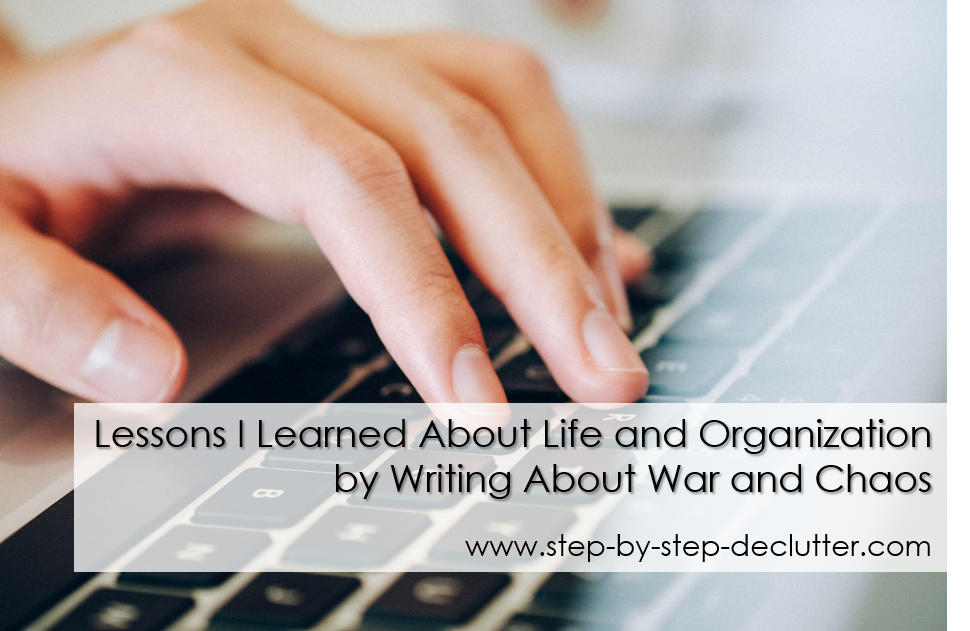




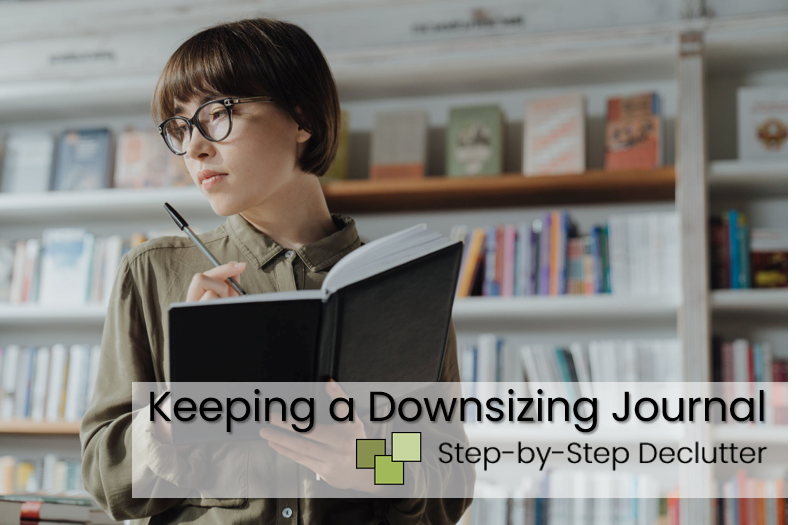


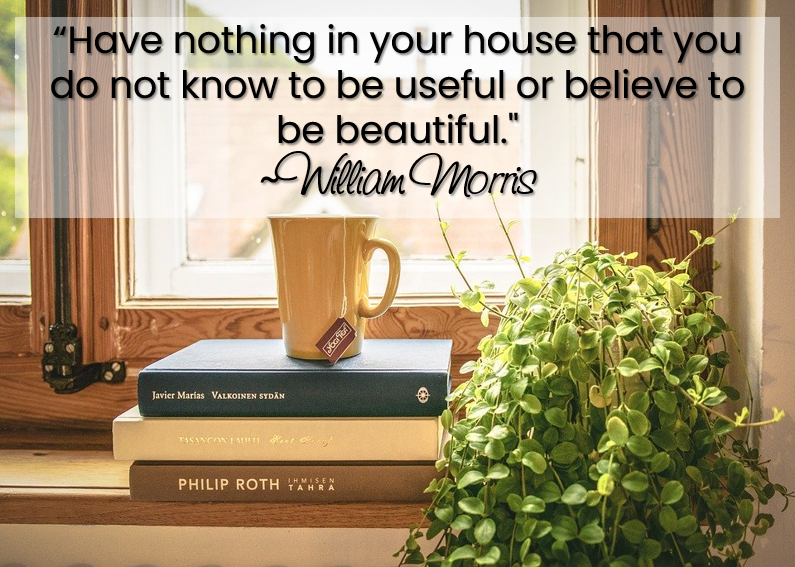




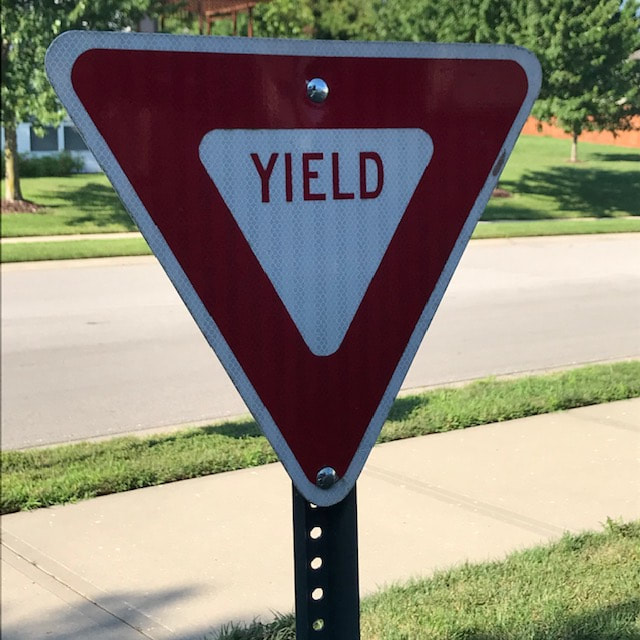


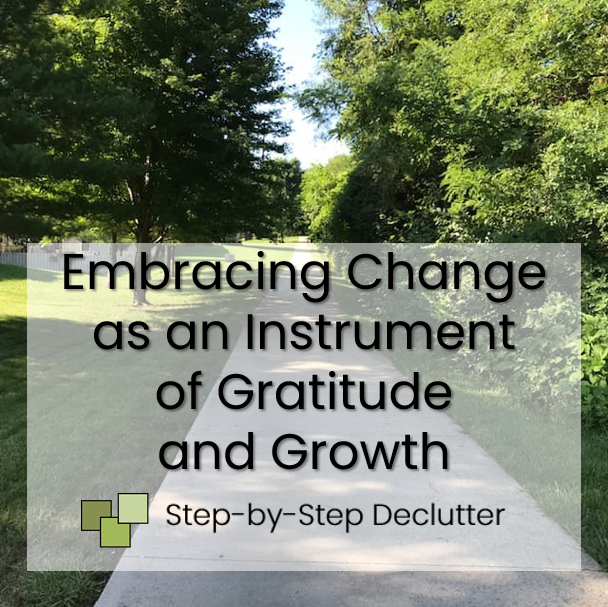

 RSS Feed
RSS Feed